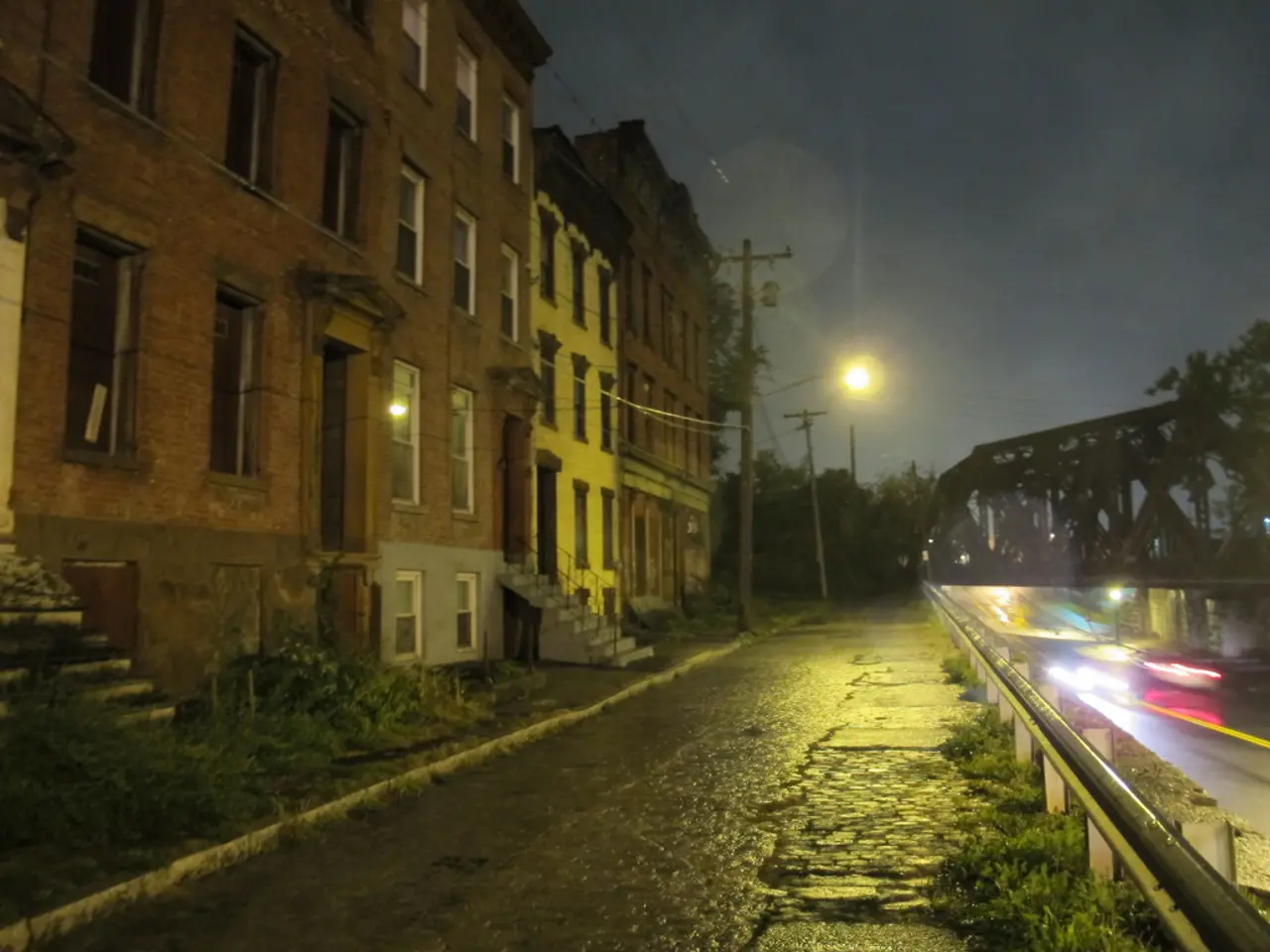Apartment sales in Ekaterinburg experience a 16.4% decrease in volume.
Here's a fresh take on the real estate market scenario in Russia in 2025:
Buckle up, folks! The Russian real estate market in 2025 is serving up a wild ride. Real estate analysts from DOM.RF have observed a significant downturn in the primary real estate market from January to May 2025, with a whopping 29% drop in the Urals Federal District compared to the same period in 2024. This shift comes as apartments were once sought-after due to the impending end of the mortgage subsidy.
In the month of May, apartment sales in new buildings in Yekaterinburg plummeted by 16.4% compared to last year. Realtors completed 1,335 deals in May, according to data from Ob'yektiv.RF.
Experts in the field have pointed out a peculiar phenomenon - the number of lots in deals is decreasing in Russian megacities. Installment plans and commercial subsidies remain the main financing methods, despite the decrease in the key rate and a 3-5% increase in the number of mortgage deals.
Of late, major banks have announced a reduction in market program rates by 1.5-3.5 percentage points and have selectively lowered the initial deposit threshold. The impact of these adjustments on the primary real estate market is expected to unfold in the June 2025 results.
DK.RU reported that the average price per square meter in April 2025 was 165,000 rubles, reflecting a 7% increase over the year.
Recent months have seen housing prices remain relatively stable, with sales volume recovering from the slow start of the year but yet to reach last fall's levels. This intriguing scenario unfolds amidst intense competition and continuous expansion of market offerings, forcing sellers to bargain on certain categories of apartments and offer the most comfortable financing conditions possible. The market experts anticipate a lack of significant price changes in the coming months, but a record-high supply peak this year is on the horizon.
Worth a read: "The Demolition of the Unfinished 'Prisma' Business Center: Who Foots the Bill?" on DK.RU.
Enriching Insights:
- Russians faced a tough hit when the subsidized mortgage program came to an end, causing a steep fall in home sales and new construction activities. Buyers were left in the lurch, dealing with a collapse in deals despite persistently high prices.
- The subsidy cut led to fewer mortgage issuances and reduced affordability. Average mortgage loans increased to about 4.4 million rubles, a 10% rise from earlier in the year, with loan durations stretching to nearly 26 years on average. Given interest rates around 30%, buyers faced immense total payment burdens.
- High interest rates have pushed buyers toward cash purchases, reflecting a tendency to treat real estate as “concrete currency” to safeguard savings amid few alternatives, despite the market's risks.
- New residential construction and the production of construction materials have dwindled due to the subsidy cuts, contributing to a slowdown in the civilian economy sector.
- While bank rate reductions helped curb the bubble risk marginally, interest rates remain sky-high (around 21-30%), which continue to constrict mortgage lending and housing affordability.
- The secondary housing market remains stable, but the primary market – sales of new properties – has seen real estate prices soar despite reduced mortgage support, exacerbating bubble risks.
- Economic challenges loom large, with inflation projected at 7.6% and structural imbalances hindering civilian sector growth.
In light of the Russian real estate market scenario in 2025, the ending of the mortgage subsidy has resulted in a decline in home sales and new construction activities, with buyers struggling to find affordable options due to a surge in average mortgage loans and extended loan durations. Conversely, high interest rates have caused buyers to opt for cash purchases, treating real estate as a form of 'concrete currency'. Meanwhile, the secondary housing market remains stable, but the primary market, selling new properties, continues to pose bubble risks with soaring real estate prices. Investors monitoring this market might consider the impact of these trends on the finance sector and the broader housing-market in Russia.






